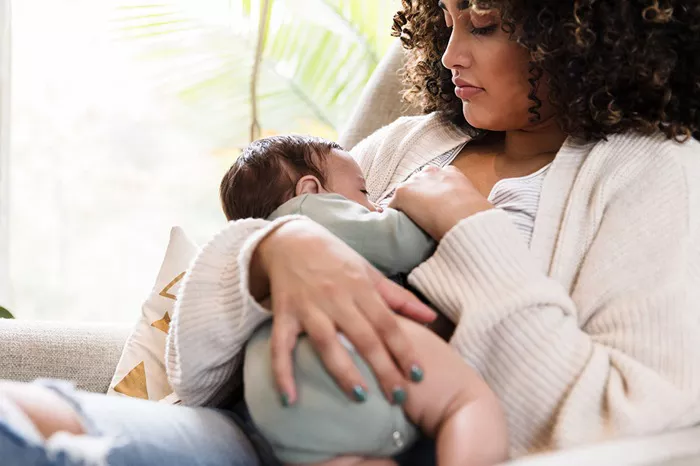Hiccups are a common occurrence in newborns. Many parents notice their baby hiccuping frequently. While hiccups are usually harmless, they can sometimes be concerning. Understanding how to treat hiccups in newborns can help parents feel more at ease. This article will explore what causes hiccups, how to treat them, and when to seek help.
What Causes Hiccups in Newborns?
Hiccups occur when the diaphragm contracts involuntarily. This contraction is followed by a sudden closure of the vocal cords, which produces the characteristic “hic” sound. Hiccups are common in infants for several reasons:
1. Immature Diaphragm
Newborns have an immature diaphragm. As they grow, their muscles strengthen, and hiccups become less frequent. The diaphragm can contract easily, leading to hiccups during feeding or other activities.
2. Feeding Habits
Hiccups can occur after feeding. If a baby eats too quickly or swallows air, it can irritate the diaphragm. This often results in hiccups. Both bottle-feeding and breastfeeding can lead to this issue.
3. Changes in Temperature
Sudden changes in temperature can also trigger hiccups. For example, moving a baby from a warm room to a cooler one may cause the diaphragm to react.
4. Overstimulation
Newborns are sensitive to their environment. Loud noises or excessive handling can overstimulate them. This overstimulation may lead to hiccups as their bodies react.
How to Treat Hiccups in Newborns
Most of the time, hiccups do not require treatment. However, if parents want to help their baby feel more comfortable, several strategies can be used. Here are some effective methods to treat hiccups in newborns:
1. Feeding Changes
If hiccups occur during or after feeding, try these tips:
Burp the Baby: Burping can help release trapped air in the stomach. This may reduce hiccups. Gently pat the baby’s back while holding them upright after feeding.
Adjust Feeding Position: Positioning the baby at a more upright angle can help them swallow less air. Hold the baby at a slight incline during feeding.
Take Breaks: If the baby is feeding too quickly, take breaks. This can help reduce the chances of hiccups. Pause for burping or just to let the baby relax for a moment.
2. Pacifier Use
Using a pacifier can help soothe a baby during hiccups. Sucking on a pacifier can relax the diaphragm and may stop the hiccuping. It also provides comfort to the baby, which can be helpful during these moments.
3. Gentle Motion
Sometimes, gentle motion can help ease hiccups. Parents can try:
Rocking: Gently rocking the baby in a chair or while holding them can be calming. The motion may help the diaphragm relax.
Walking: Taking a short walk while holding the baby can also provide comfort. The movement may help alleviate hiccups.
4. Warm Compress
Applying a warm compress to the baby’s tummy can help. The warmth may soothe the diaphragm and relax the muscles. Make sure the compress is not too hot. Always test it on your skin first.
5. Distract the Baby
Distraction can be effective in stopping hiccups. Parents can try to engage the baby in other activities. This may include:
Singing or Talking: Softly singing or talking to the baby can shift their focus away from the hiccups.
Playing: Gentle play, like wiggling their toes or moving their arms, can also provide distraction.
6. Time and Patience
In many cases, hiccups will resolve on their own. Newborns often have hiccups that last only a few minutes. Parents should remember to be patient. Watching and waiting is sometimes the best approach.
When to Seek Medical Help
While hiccups are usually harmless, there are times when parents should consult a healthcare provider. Parents should seek help if:
The hiccups last for an extended period, beyond a few hours.
The baby seems in pain or discomfort during hiccups.
There are other concerning symptoms, such as vomiting or difficulty breathing.
These signs may indicate an underlying issue that needs medical attention.
See also: Why Do Newborns Get the Hiccups
Conclusion
Hiccups are a normal part of infancy. They often occur due to an immature diaphragm, feeding habits, or overstimulation. Most of the time, hiccups are harmless and resolve on their own. However, there are several effective strategies to help treat hiccups in newborns.
Feeding changes, gentle motion, and distraction can all help ease the discomfort. Using a pacifier or applying a warm compress can also provide relief. Parents should remember to be patient, as hiccups typically go away on their own.
If hiccups become prolonged or are accompanied by other symptoms, seeking medical advice is important. Understanding hiccups can help parents feel more confident in managing this common issue. By using these tips, parents can help soothe their baby during hiccup episodes and create a more comfortable environment for their little one.
Related topics:


